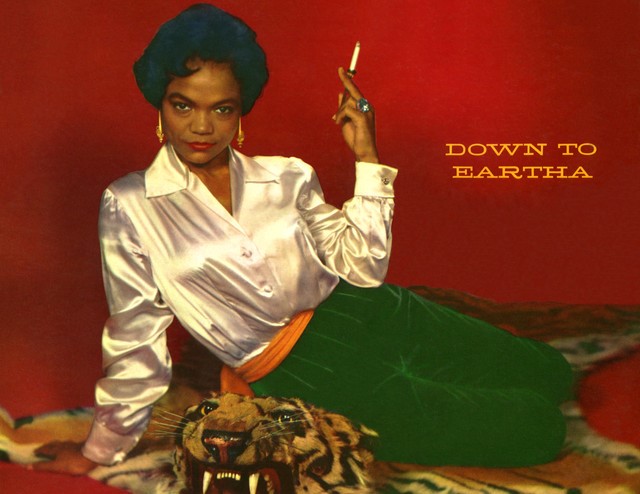Rock ‘n’ roll, rhythm and blues: the genres of music that defined half a century were morphed by legends like Tina Turner. The Queen of rock ‘n’ roll was born on Nov. 26, 1939. From the ‘50s and onward, her smooth voice carried us over a rough world.
She was born with the name Anna Mae Bullock. Her rise to stardom was stifled, and her well-known name sickened her. Against all odds, she lives on in our hearts and will forever be recognized as one of the most iconic women in music history.
Her story begins concurrent with the genesis of soul music. There is not one single story that can describe all of Turner’s influences, though it should be evident from her range as a singer that she had a great many of them. Soul was built upon the music of black churches, especially gospel choirs. Together, gospel, blues and soul artists defined some of Turner’s biggest influences: Mahalia Jackson, Sister Rosetta Tharpe and Ray Charles to name a few.
Growing up in the heart of the Tennessee delta, Turner was refined by a gospel choir. From an early age, her talents promised greatness. She began singing with Ike Turner in 1956. Having popularity in the St. Louis club scene, Ike Turner and his band frequented Club Manhattan. It was there on a whim that Ike Turner’s drummer handed the microphone to Ann Bullock. She had been entranced by the band, and she knew that she could sing like the men up there. As the sky darkened on that night, Ike Turner saw the skinny singer shine. Moreover, he saw an opportunity.
At first, they were friendly with one another. It wasn’t until the debut of soul hit “A Fool in Love” in 1960 that their relationship took a turn for the worse. Without her consent, Ike Turner had produced the record crediting Tina Turner, as opposed to her stage name Little Ann, as the lead singer.
“He always fought women, men, everybody,” as she described in a 2013 interview with Oprah Winfrey. “My instincts told me I was moving into something that wasn’t gonna be good.” In a manipulative grasp for control, Ike Turner had patented Tina Turner’s name so that she could never leave him. In the decade following their marriage, they performed as the Ike & Tina Turner Revue.
Tina Turner fell into a depression that shrouded her soul. Ever graceful, she continued performing with the same strength she always had. The group rose to new heights with the release of River Deep, Mountain High. The title track from the album overwhelmed European charts and landed them a tour of Europe with The Rolling Stones.
At some point, the band explored doing live covers of popular rock songs. Rock ‘n’ roll was emerging as a genre defined by black music but sold to white consumers. The sound was tantalizing to a huge audience, but studio executives across the nation were predominately white. Tina Turner didn’t become liberated until her performance of Creedence Clearwater Revival’s “Proud Mary.” Of course, Ike Turner prohibited the recording of this song when she suggested it as he had done in the past.
“We never, ever do nothing nice and easy /
We always do it nice and rough.”
It’s no secret as to why this song led to Tina Turner’s success. Her timbre on the track is explosive like the horns that accompany her. The first half is slow and soulful before a frenzy of funk tears up the second half.
She highlighted her voice on The Dick Cavett Show: “When I started singing, Ike had mostly male singers, and I wanted to sound like they sounded.” When Cavett asked why so many female singers want to be men, she continued, “I didn’t say I wanted to be a man.” Tina Turner’s voice is both raspy and tranquil. It flows and it bites.
By the age of 36, Tina Turner had broken up with her husband. “I felt that I had become all the songs that I was covering,” she writes in her autobiography, “that I had become rock ’n’ roll.” An ordinary artist would be comfortable with this level of success and simply carry on. Tina Turner was no ordinary artist. Instead, she began a solo career. Free from fear, Tina Turner would be allowed to flourish as the talented performer she always was.
An architect, Tina Turner had a voice that built rock, then transcended it. I point to her feature from the film Mad Max: Beyond Thunderdome. I would say this is a prime example of her vocal power and prowess. With all the cliché of ‘80s action films, “We Don’t Need Another Hero” captures an image of perseverance.
This song and many like it can be heard on her 1984 album Private Dancer. It holds brilliant covers and beautiful originals alike. In fact, her most popular song comes from this album, too.
“What’s Love Got to Do with It” is another great song which showcases Tina Turner’s determination to triumph. Her belting and raspy vocals on this track proclaim a fear of emotional intimacy. Instead, she knows that her own protection comes first. Taking control of her relationships, she produced other songs that preach sexual liberation.
I think Tina Turner’s best songs feel this way. She explores love in every form. In every performance, she stunned us with her energy. Her voice was charged, and her soul was potent. She was unafraid in the end. Neither conviction nor strength knew a finer woman in the world of music.
I encourage listening beyond those songs mentioned above. Know for yourself the euphoria that is her voice. My favorites being from her work in the ‘80s, both covers and originals worthy of praise can be found across her collection.
The link to this article’s feature photo can be found here: Les Zg, CC BY-SA 4.0 <https://creativecommons.org/licenses/by-sa/4.0>, via Wikimedia Commons













































